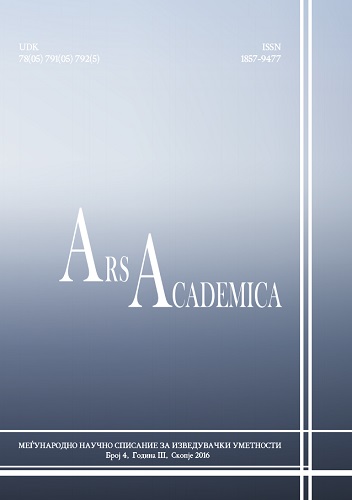Freedom of Expression in Contemporary Theatre – The Right to Offend
Freedom of Expression in Contemporary Theatre – The Right to Offend
Author(s): Milena StefanovićSubject(s): Theatre, Dance, Performing Arts
Published by: Факултет за Драмски Уметности - Скопје
Keywords: freedom of expression; theatre; institutions; (self) censorship
Summary/Abstract: Artistic censorship is on the rise throughout the world. Based on selected case studies, this paper discusses freedom of expression in contemporary theatres in Serbia. The research shows how the question of artistic freedom becomes degraded, and how this relates to the general social ambiance and state of affairs. Censorship and self-censorship feature as most traumatic phenomena in theatre history, however, they are still present in contemporary theatre life. By identifying and classifying the reasons and motives behind the (self) censorship practices, we trace the ideological slips associated with values of the Serbian society and politics – from homophobia, violence or various forms of criticism to protection of the national identity, heritage and religion. In the posttransitional cultural model, with legacies of the previous system which require new approaches and reforms, both artists and theatres are struggling to survive, and the social and political climate is not helpful in this respect. The artists have the right to offend – the state, religion, political elites, by expressing different views, revealing new pictures and saying unpleasant things simply because that is what art is all about – freedom.
Journal: Ars Academica
- Issue Year: 2016
- Issue No: 4
- Page Range: 127-148
- Page Count: 22
- Language: English

